The school of Jil village is too big for 93 students. Children’s voices disappear in the cold, colorless and wide corridors of school. Principal Armenuhi Simonyan says the school used to have up to 1,300 students. Now they are using only the part of the school building which is better maintained, and the classrooms are heated with oil heaters. A new modular building will probably be built with state funds next year.
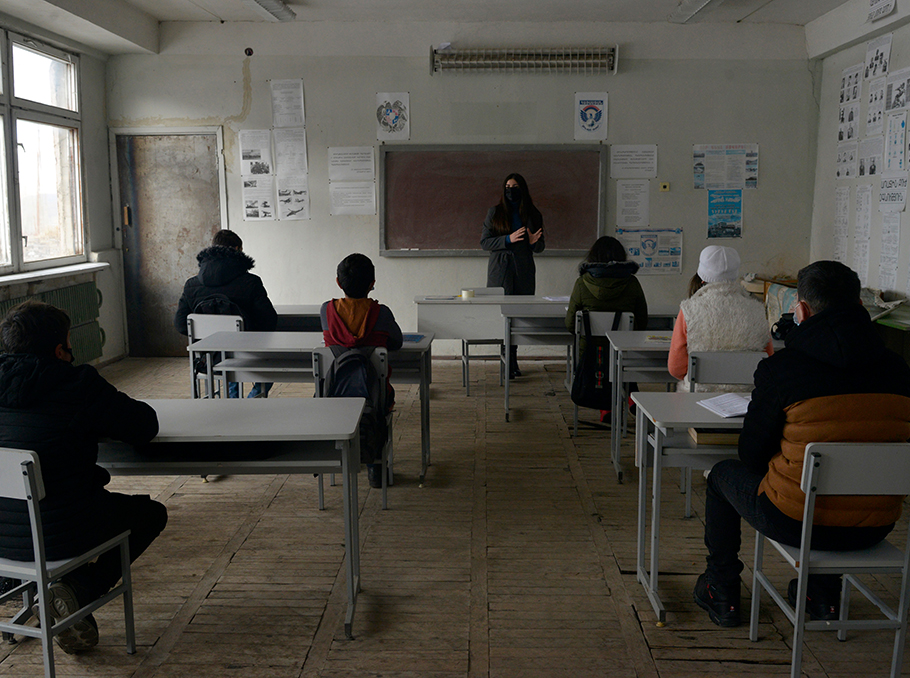
Photo: Vaghinak Ghazaryan/ Mediamax
You can see the half-destroyed building of Azerbaijani school from the library window. The village of Jil of Gegharkunik region was inhabited by Azerbaijanis. Armenians deported from Azerbaijan have resettled here since 1988.

Photo: Vaghinak Ghazaryan/ Mediamax
“We are on the border, but we are not border guards and have no privileges,” the principal says, listing the main problems the village faces today: no gas, destroyed roads. Chemistry and biology have not been taught at the school for years due to lack teachers.
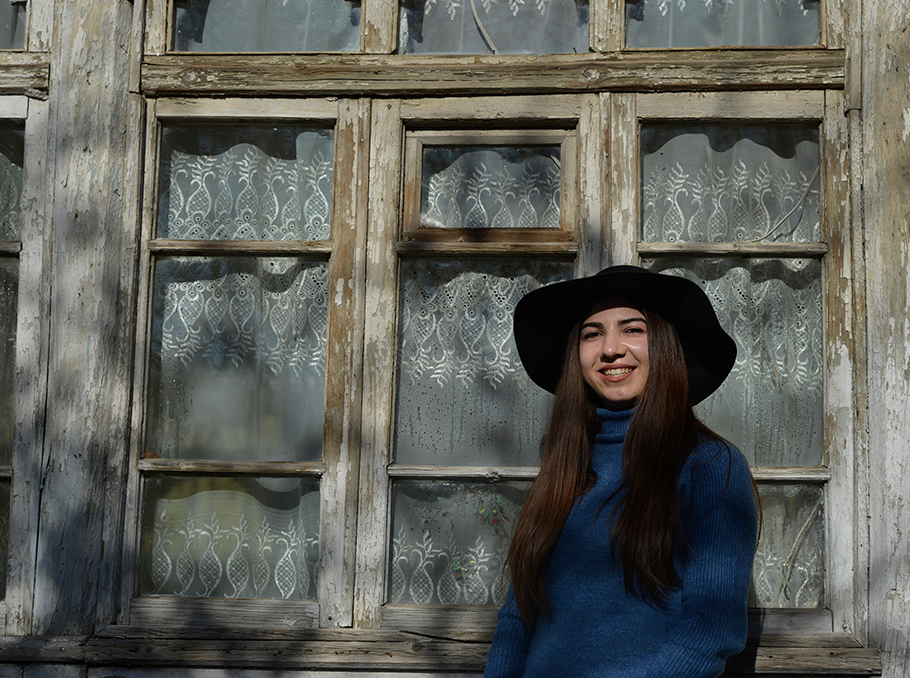
Photo: Vaghinak Ghazaryan/ Mediamax
Armine Simikyan moved to Jill last year. Upon graduating from the Pedagogical University, she joined Teach For Armenia. She hesitated to apply. In the final stage, Armine knew for sure that applying was the right thing to do, and she told her family about her decision.
- How did you take Armine’s decision to apply for Teach For Armenia Leadership Development Program? - I ask her mother.
- I said ‘God bless you’. If you set a goal, you must go for it, - says Mrs. Gohar.
“My brothers did not approve of my decision and kept asking me if I at least knew where I was going. I said I didn’t know the region but I knew I was going to a nice place. I thought the farther away, the better, I would better understand how people think and see different cultures. My family’s support is extremely important to me. When we have a goal, a dream, it is very important that our family members support it.”
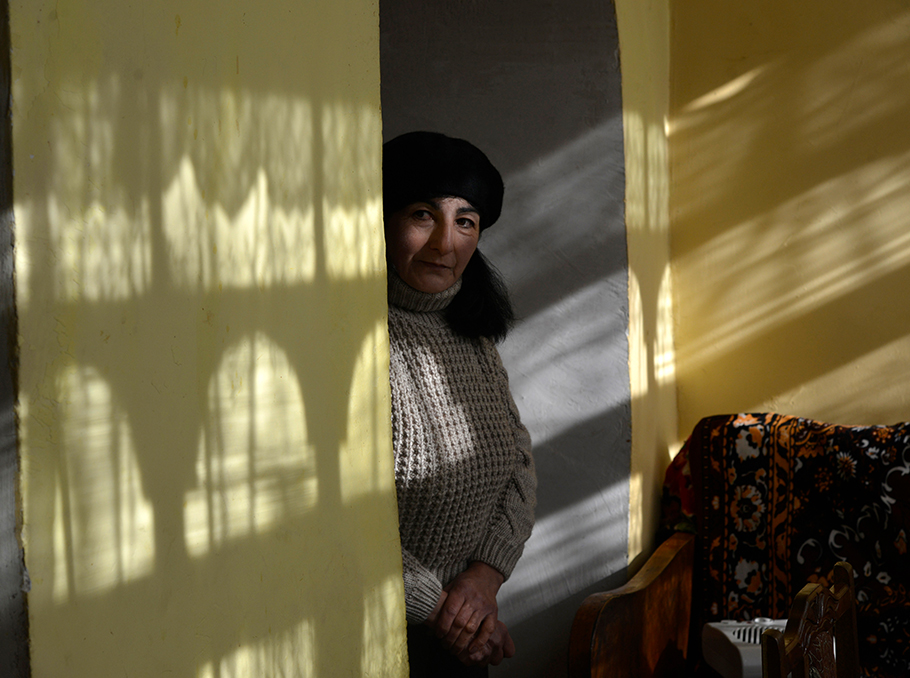 Mrs. Gohar
Mrs. GoharPhoto: Vaghinak Ghazaryan/ Mediamax
Armine wasn’t taught by the methods used to teach now. She says the teacher’s mission is to discover the potential of children, to create an environment where they can freely express themselves and become independent.
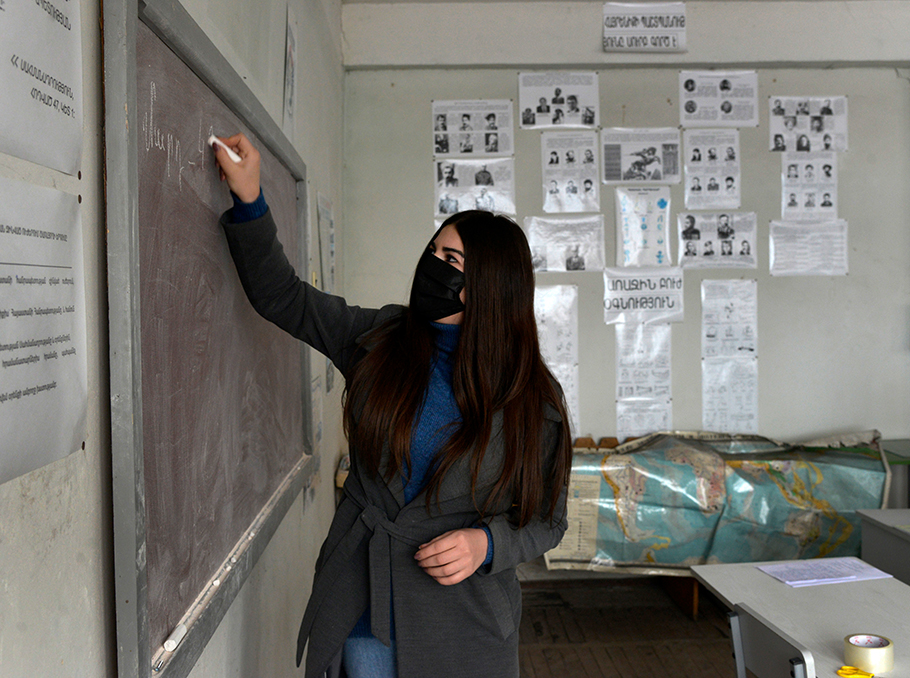 Armine Simikyan
Armine Simikyan Photo: Vaghinak Ghazaryan/ Mediamax
“Our task is to discover the children’s capabilities. One of my boys has a hard time learning biology and other subjects, but he is very good at painting. It’s my duty to tell him that he is very talented and can succeed in painting. We must try to discover our children. That’s why it is very important that the child trusts the teacher. If there is no love and respect and only a sense of duty, the child will be closed off and there will be no one to guide him.
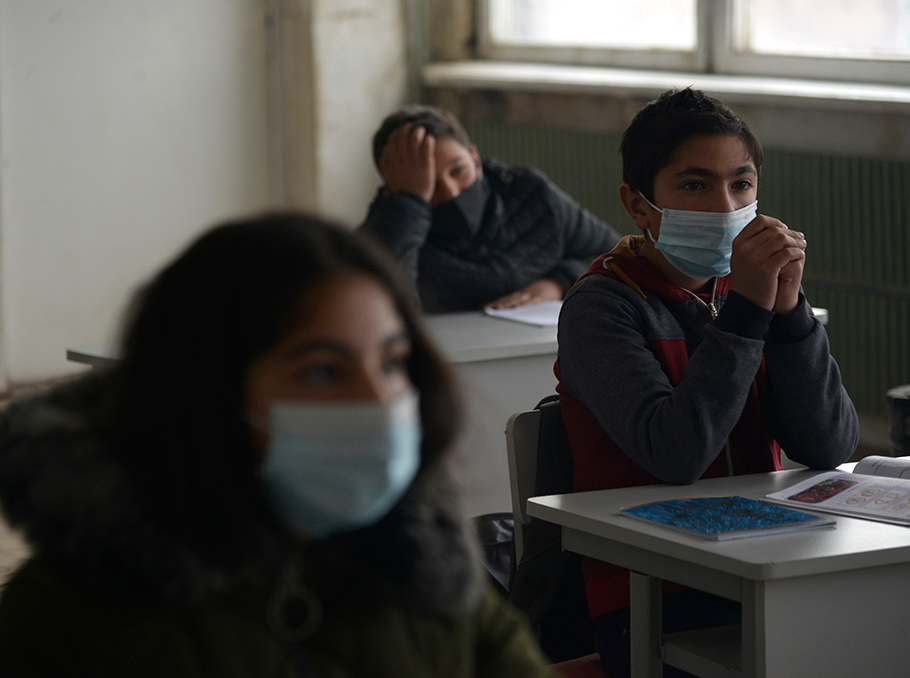
Photo: Vaghinak Ghazaryan/ Mediamax
We must create an opportunity for every child to learn, to feel the importance of education. All the boys here want to join the army because their fathers are in the military, and it is the only job they can get. We have to offer a lot to children so that they can choose.”
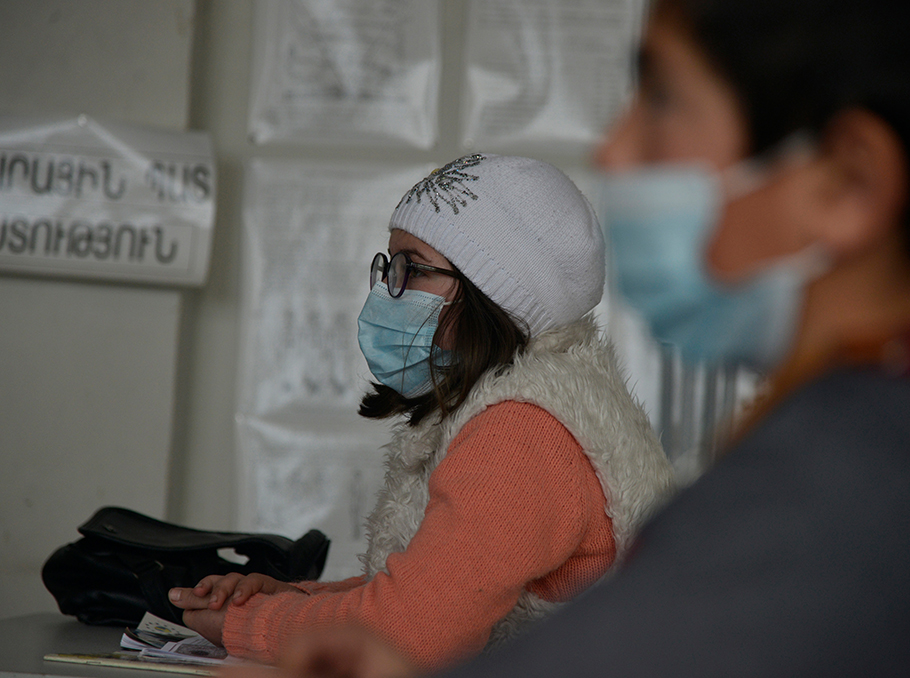
Photo: Vaghinak Ghazaryan/ Mediamax
Armine also worked with school children as an intern when she was a student. She says children in the city are more active and relaxed. When she had just moved to the village, they went hiking with the children and played ball. One of the teachers warned her that after these activities it would be hard to reign in the class. Fortunately, Armine says, the opposite happened. She values the opinion of the children the most. Together they set the rules, and together discussed what methods to use.
“We think we are teachers and the methods we have chosen are the best, but they may be not interesting for children. I told them if they were not ready for the lesson, they should be honest with me instead of saying they didn’t understand it, because if someone did not understand something, it means I failed to explain properly, or this definite approach was wrong for the given student and he needs another approach.
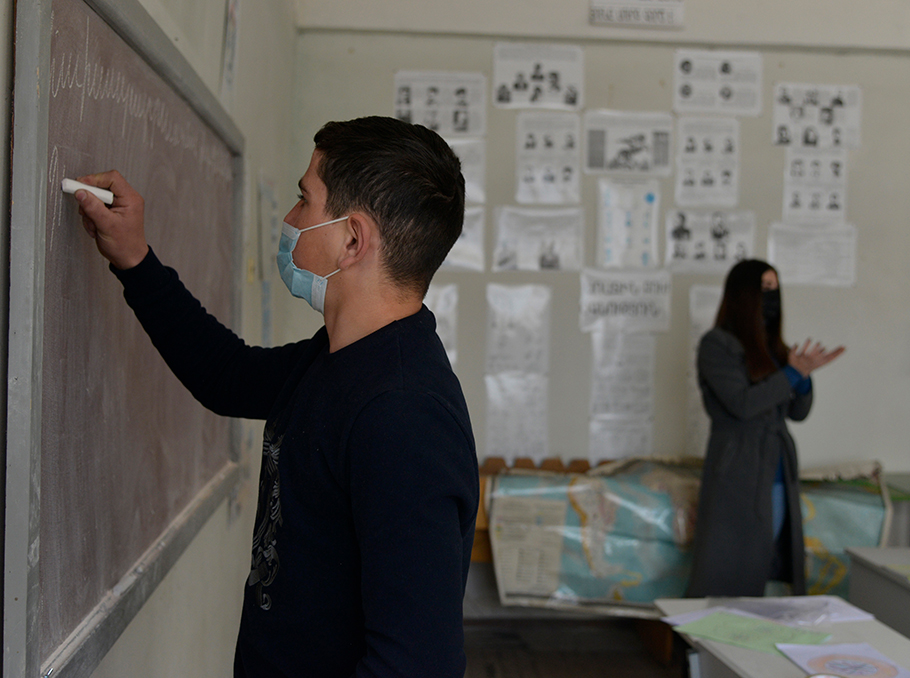
Photo: Vaghinak Ghazaryan/ Mediamax
I never assign an “F” to my students, because that grade does not affect the quality of education, it does not fit into the concept of education. It’s just a grade and it should be the same for the children. I want the students to learn not because of the grades but because they are interested and love it. Once, one of the boys did not do his homework. He came in and said he was not ready but he was going to do his homework right away. This is more inspiring, and they come prepared for the next lesson.”

Photo: Vaghinak Ghazaryan/ Mediamax
Armine says working with children changed her, too. She became freer and more relaxed while communicating with people. She is even trying to develop her painting skills, although she always thought it was not her thing. Now, with her paintings, Armine is trying to make biology more vivid and easier to learn. Before the pandemic and communication restrictions, she wrote letters of encouragement to her students.
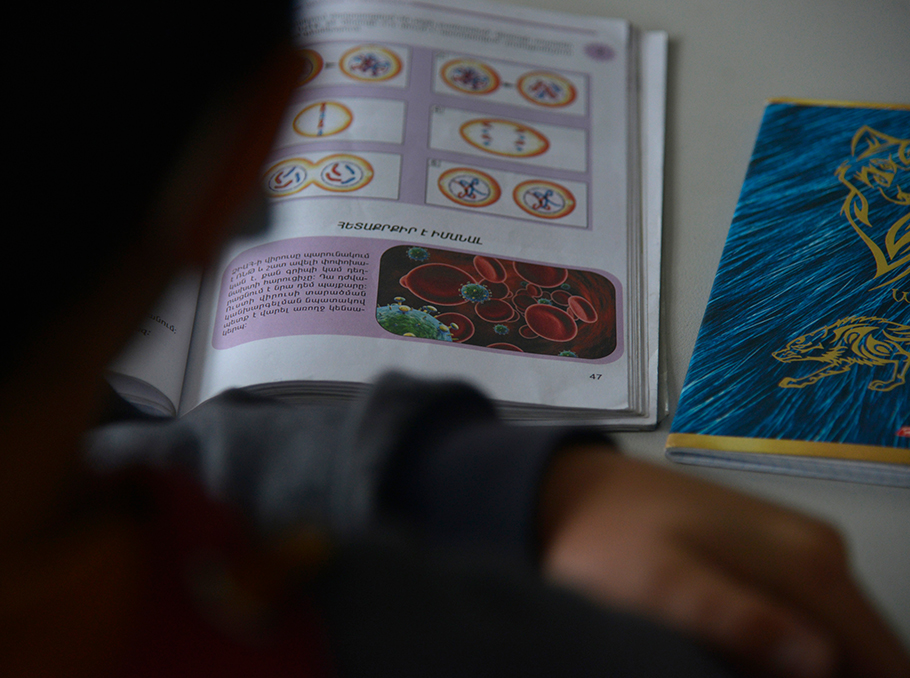
Photo: Vaghinak Ghazaryan/ Mediamax
“If the students do their homework well, I write that it will lead them to success. Or if they overcome some hardship, I write: step by step we’ve come to a point after which things will get much easier. I never use a red pen when grading the homework, because children are afraid of red. My pens are colorful. On post-it-notes I write what they did good and what was missing. Children must know not only their weaknesses, but also their strengths to be able to know what gaps to fill in. And I always draw a smiley face in their copy-books, which makes them very happy.”
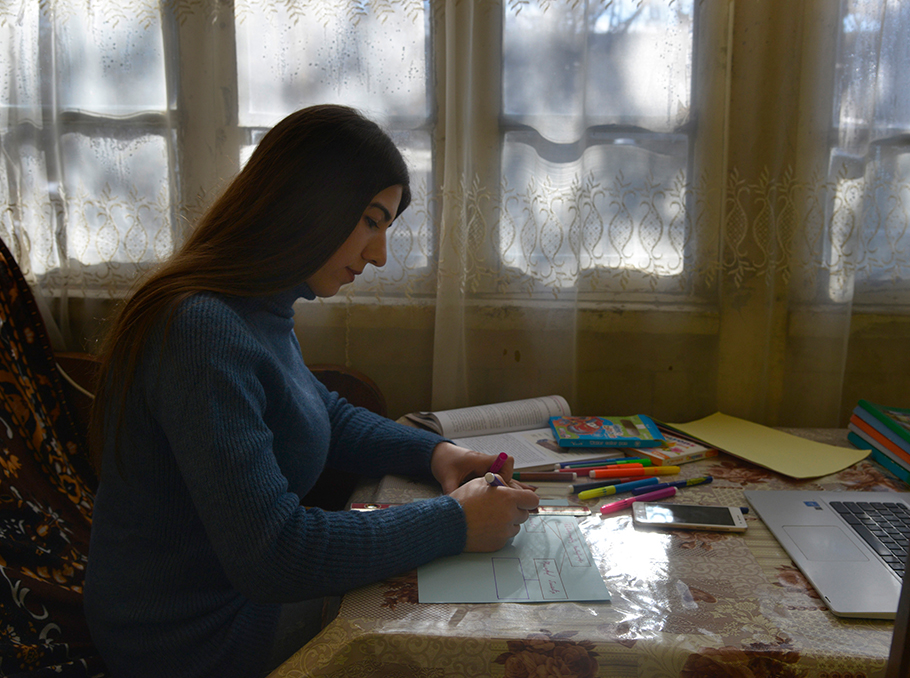
Photo: Vaghinak Ghazaryan/ Mediamax
It is hard to understand who is new in the animated atmosphere of the 9th grade. Vardan is one of two students who has recently moved to Jil from Artsakh. His brother is in the 11th grade.
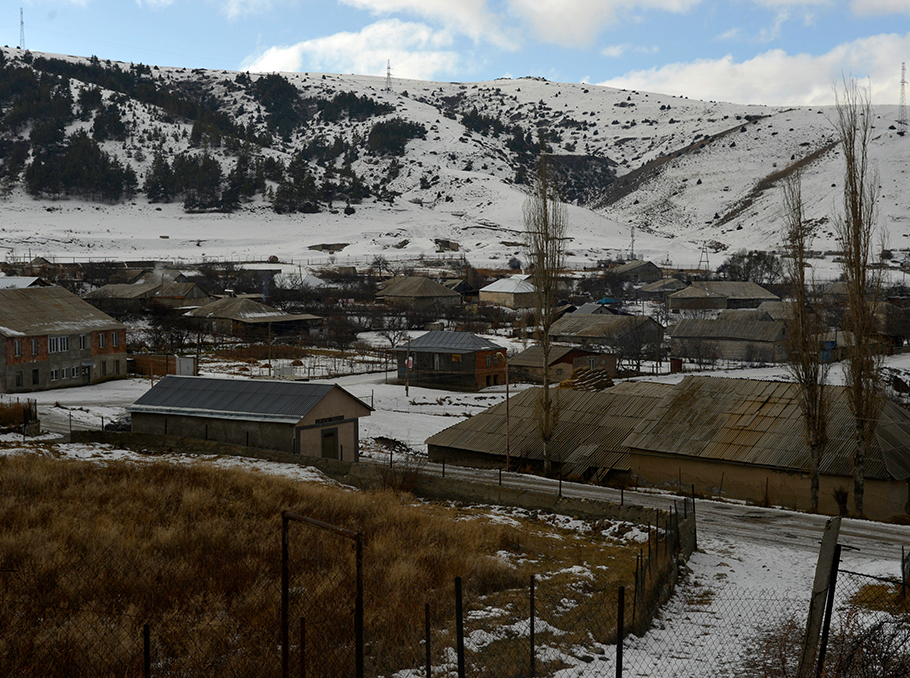
Photo: Vaghinak Ghazaryan/ Mediamax
The Margaryan family left Nor Verinshen village of Shahumyan region on November 15, the day when the village should have been handed over to the enemy. Part of the family settled in Vaghashen village of Gegharkunik region, while the other part came to the village of Jil, where their relatives lived. They hope that the family of 17 will be together again by spring.
- I and my two brothers are here with our elder brother’s family, - says Vardan.
- Are there 4 of you?
- There are 4 of us here, but in general we are 9.
- Which one are you?
- I am the 8th brother, but I also have four sisters. We are 13 siblings.
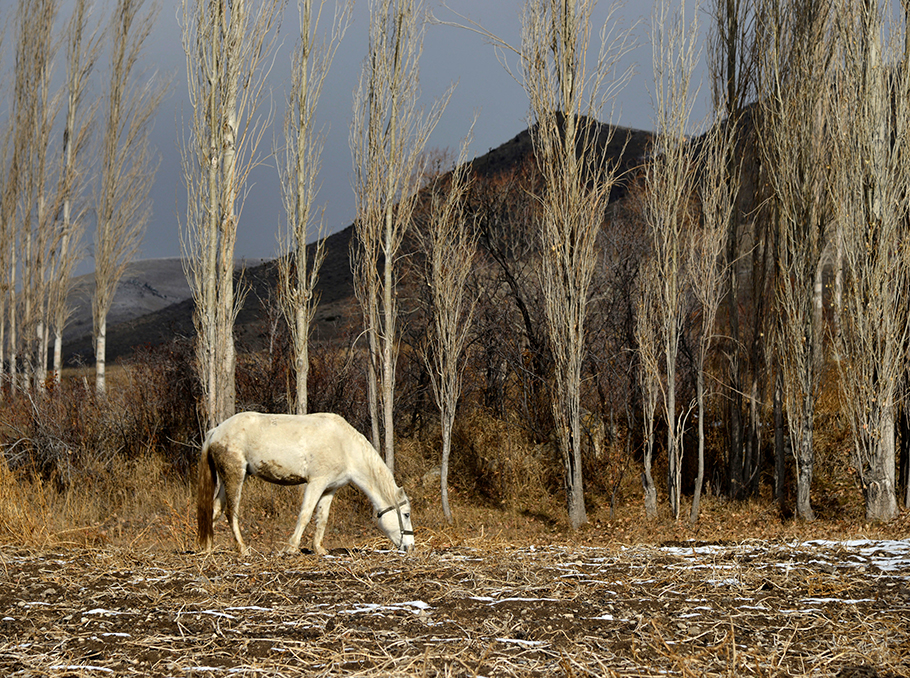
Photo: Vaghinak Ghazaryan/ Mediamax
Vardan says that Jill is a good place for keeping animals. They got used to the village. Everyone at school has welcomed him, he already has friends, but he misses his village a lot.
“We all were very sad to leave our village. My childhood, my whole life is there. If something goes bad here, I compare it to how things used to be back home and say it was better there. I miss everything: my school, studying with my friends, my village, my home. We all hope we will go back to Artsakh in the spring. If we have our village back, we will go to our village.”
As to how they will take their village back, Vardan has no idea, but if Nor Verinshen is populated by Armenians again, he will not be afraid of living next door to Azerbaijanis.
Armine and several teachers visited Vardan’s family when the boys were not attending school yet, and told them they were waiting for them at school.
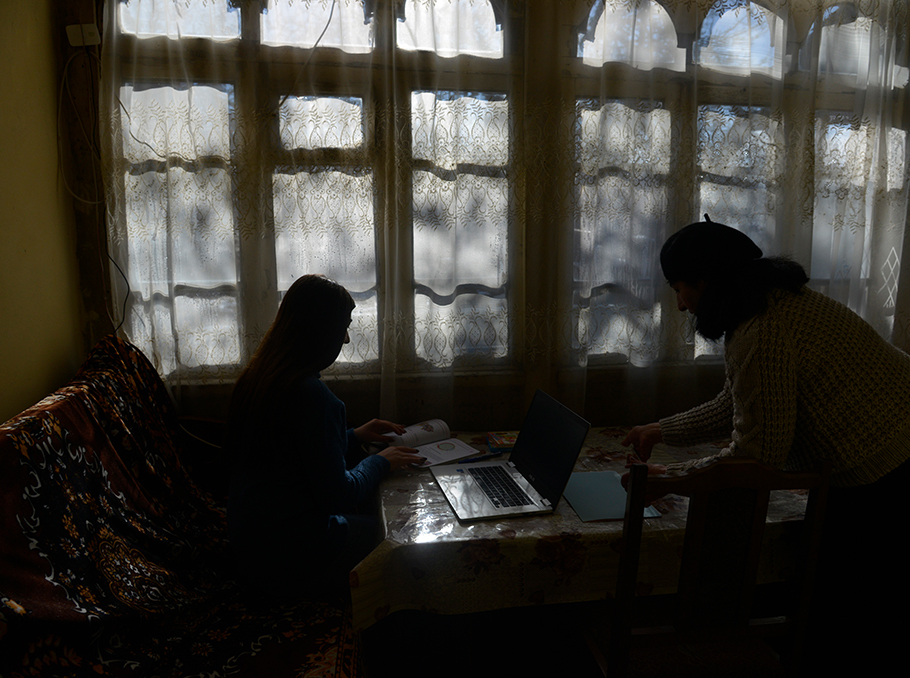
Photo: Vaghinak Ghazaryan/ Mediamax
Armine rarely goes home to Merdzavan village of Lori region, only on vacations. She visits with her relatives for a few days and then begins to miss her students. She lives in Jil with her mother, sometimes her sister comes to visit. “It’s so nice having my mother here and come home to her after work.”
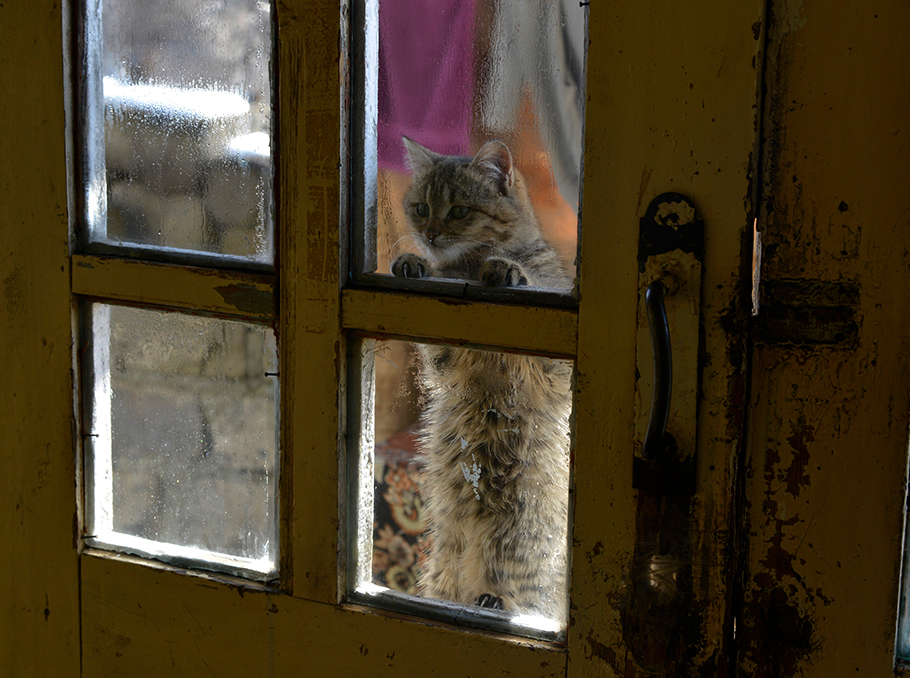
Photo: Vaghinak Ghazaryan/ Mediamax
“I was right to come live with Armine. She eats well, the meal is ready, the place is warm. It’s a very good village in the mountains. The neighbors are also very good people. Their life is hard, but they are open-hearted and kind,” says Mrs. Gohar.
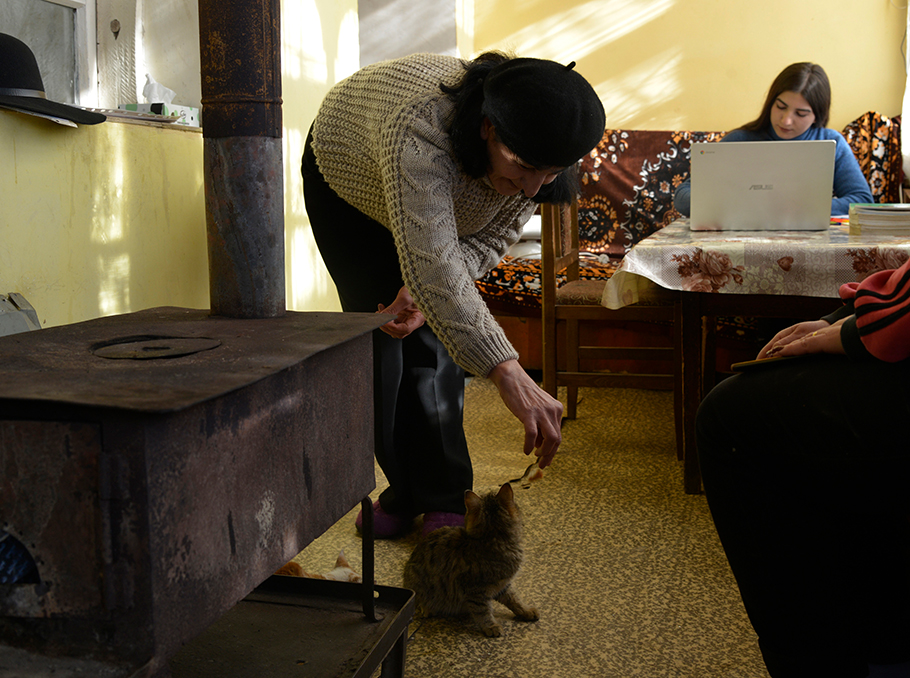
Photo: Vaghinak Ghazaryan/ Mediamax
They’ve changed three houses in the village. Armine’s students helped her find the house they are now living in, on relatively good terms. They have adapted to all the difficulties of life. The only thing they can’t do is light the wood stove. No matter how much her students tried to teach her, she can’t do it.
The children often visited Ms. Simikyan before the pandemic. When it was cold at school, they had the “Fascinating Biology” Club at home. “They would come, each bringing a treat - potatoes, apples, pears.”
The village will have a playground soon. Armine drafted a project for “Green Planet” eco-park with her students, and they received a grant. They will plant trees, collect garbage, paint tires and grow flowers inside. Another project will be implemented after the new school building is built. The “Educational Greenhouse” is for high school students so that they learn how to care for and grow a plant.
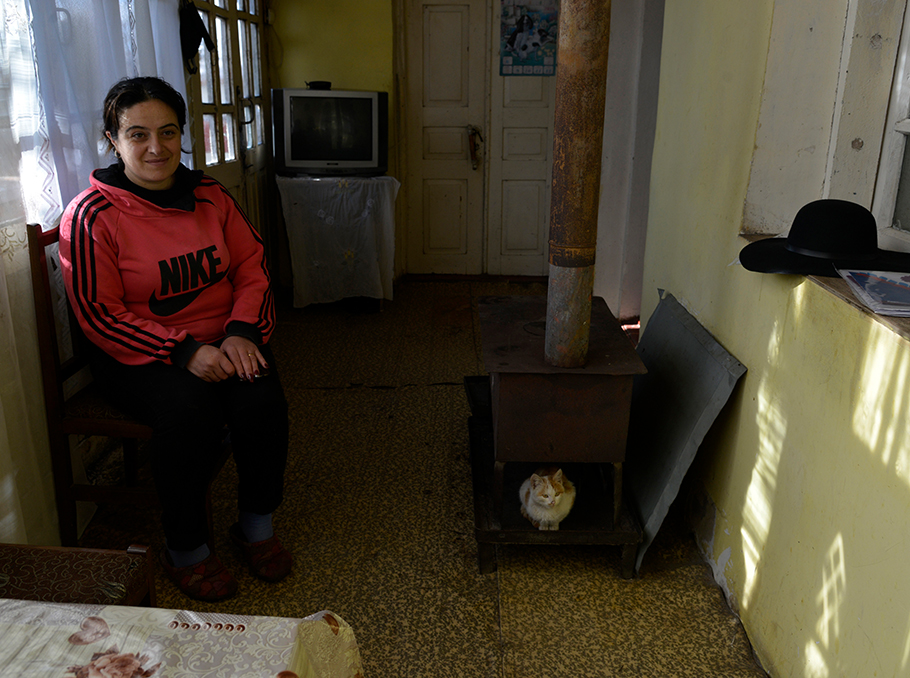
Photo: Vaghinak Ghazaryan/ Mediamax
“Armine is a very good teacher. It is nice having an educated specialist who understands the children’s psychology. They feel devastated when they think she may be leaving them soon,” says Maria, Armine’s neighbor.
“I feel the same way that I have to leave. But I will definitely be more useful if I achieve my goals. Another teacher will have the opportunity to come, interact with these children and succeed.”
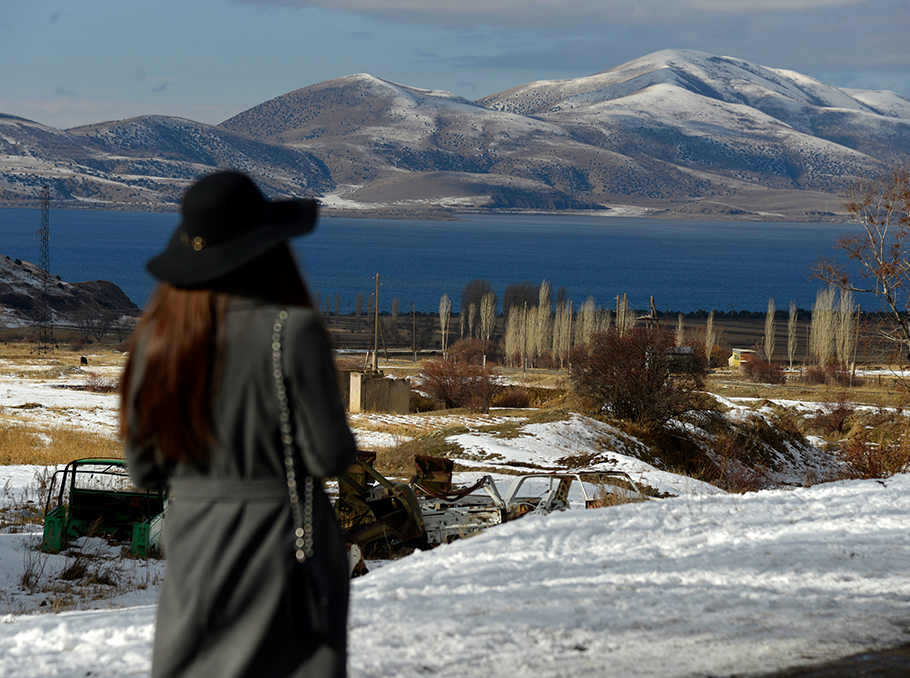
Photo: Vaghinak Ghazaryan/ Mediamax
Armine believes that if she had worked in her hometown, where she knows everyone, she would not have a problem overcoming difficulties, and it would take her more time to become a good teacher.
When the program is over, she would like to continue working as a Leadership Development Manager at Teach For Armenia team. She also decided to study biology. The two years spent in Jill are an important and interesting experience.
Lusine Gharibyan
Photos: Vaghinak Ghazaryan (especially for Mediamax)
















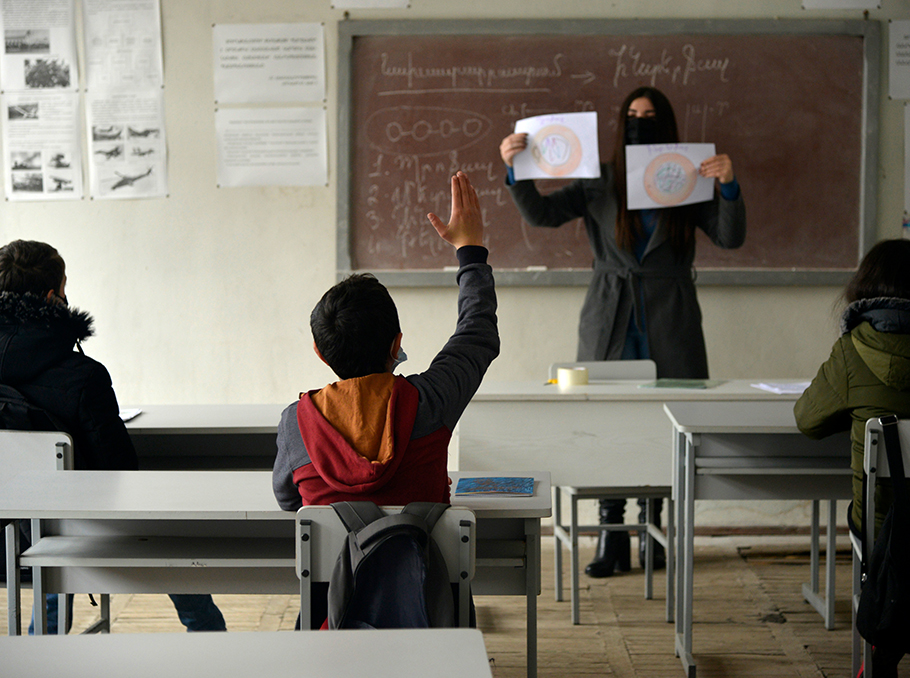
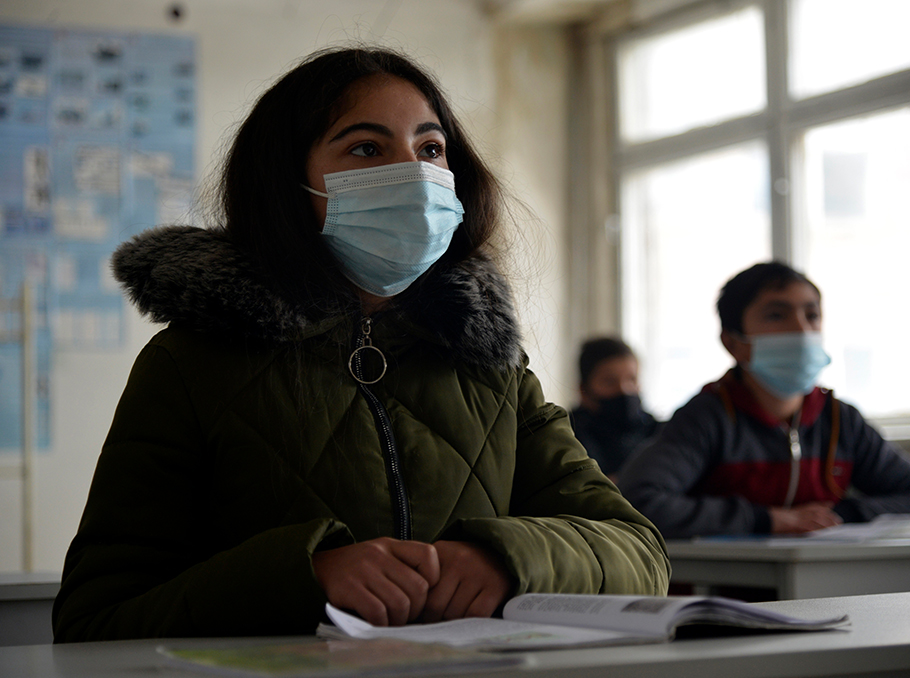
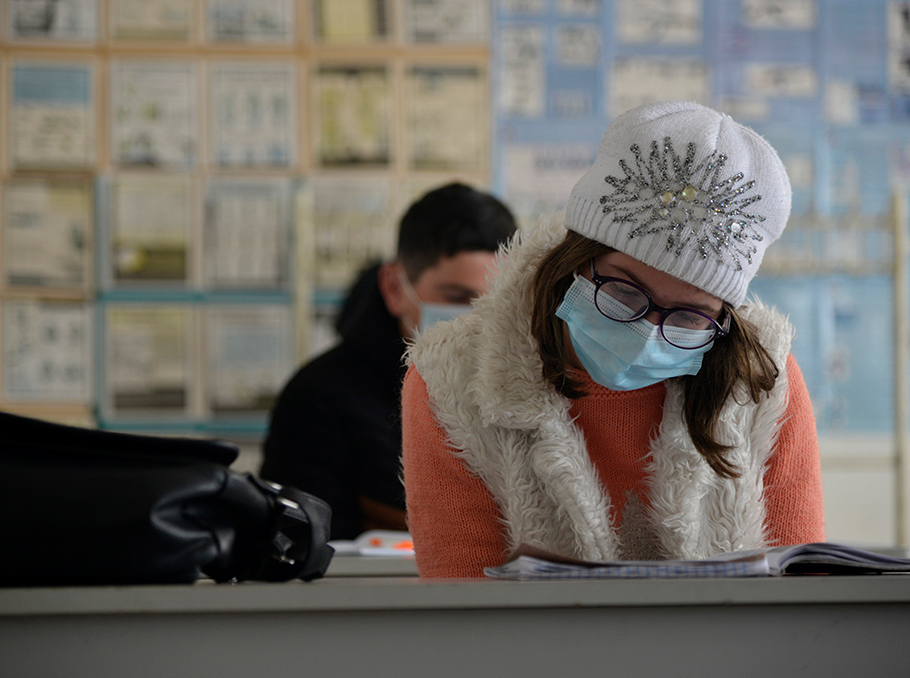

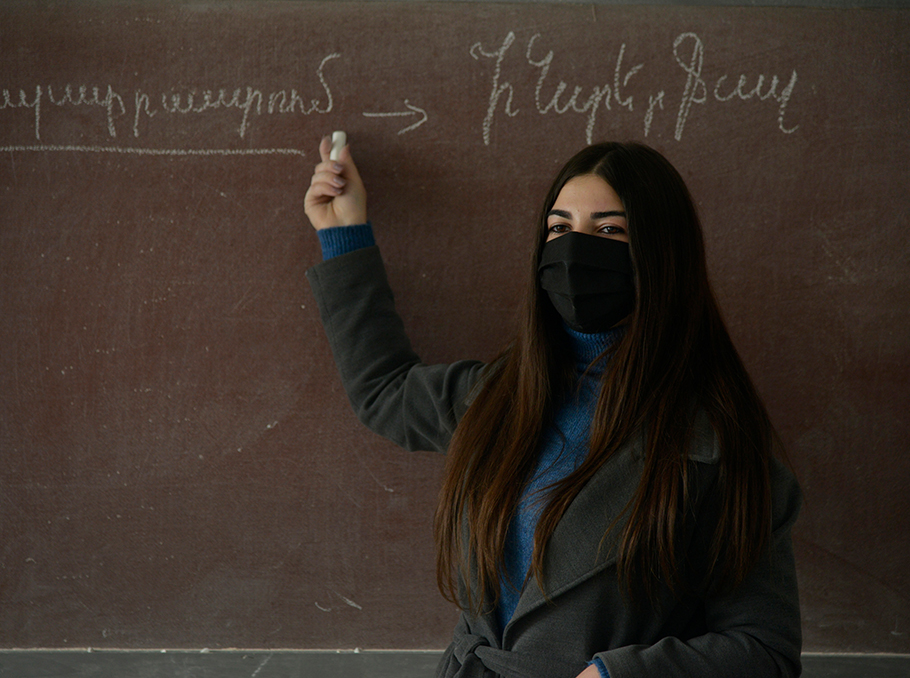
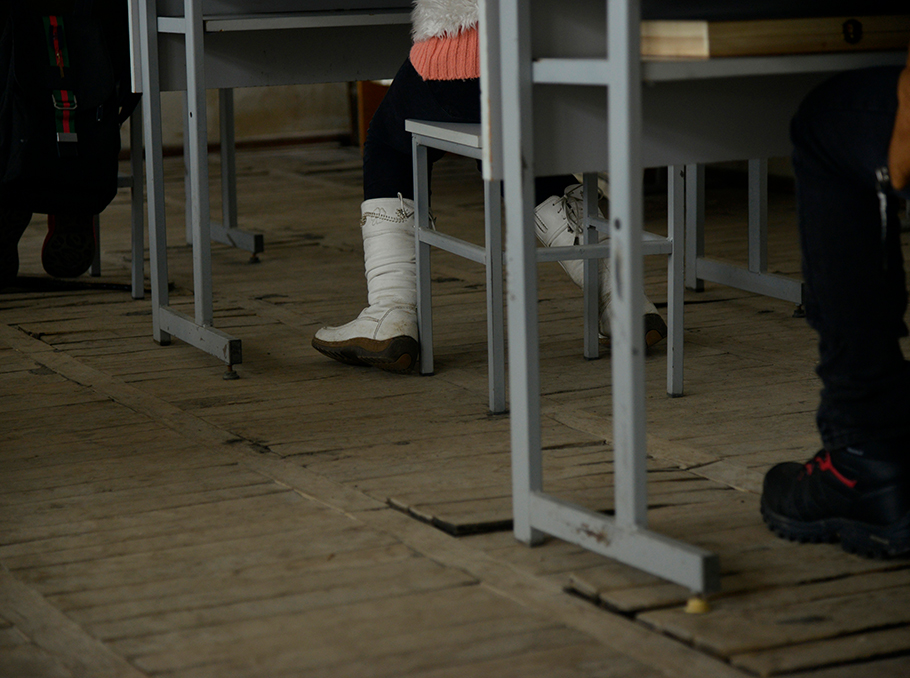
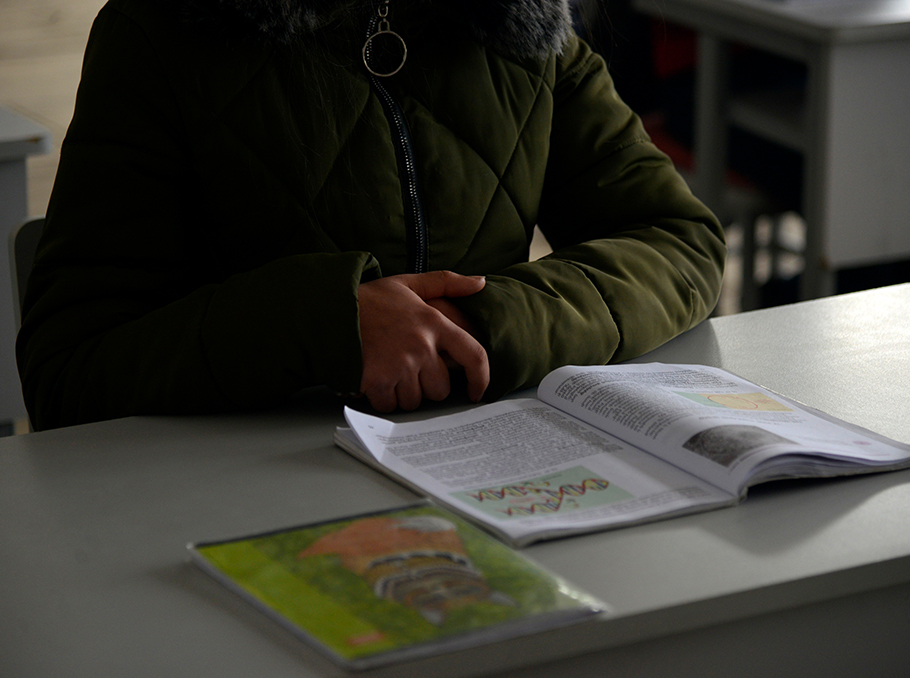


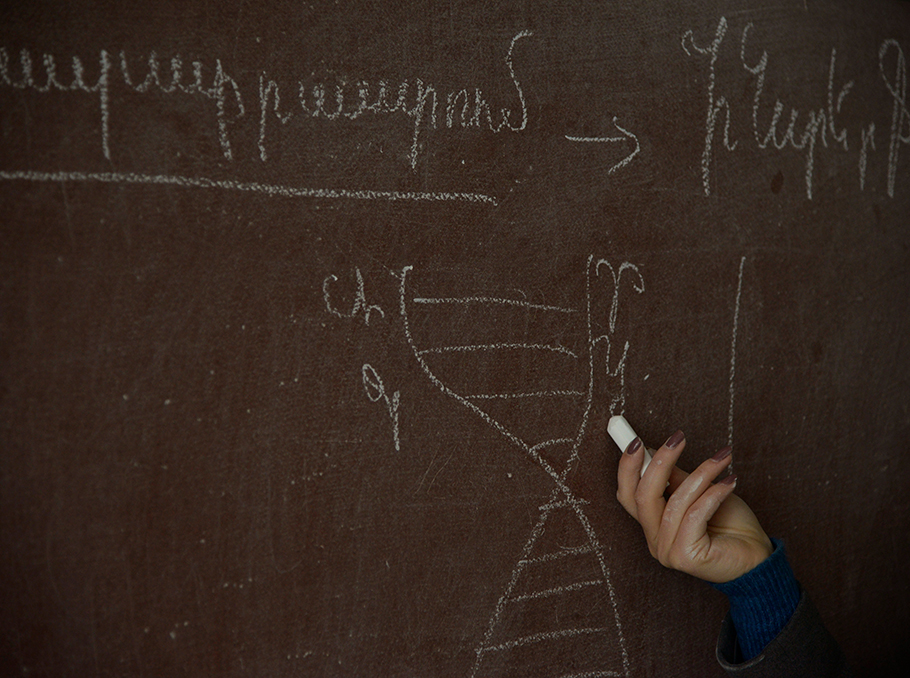
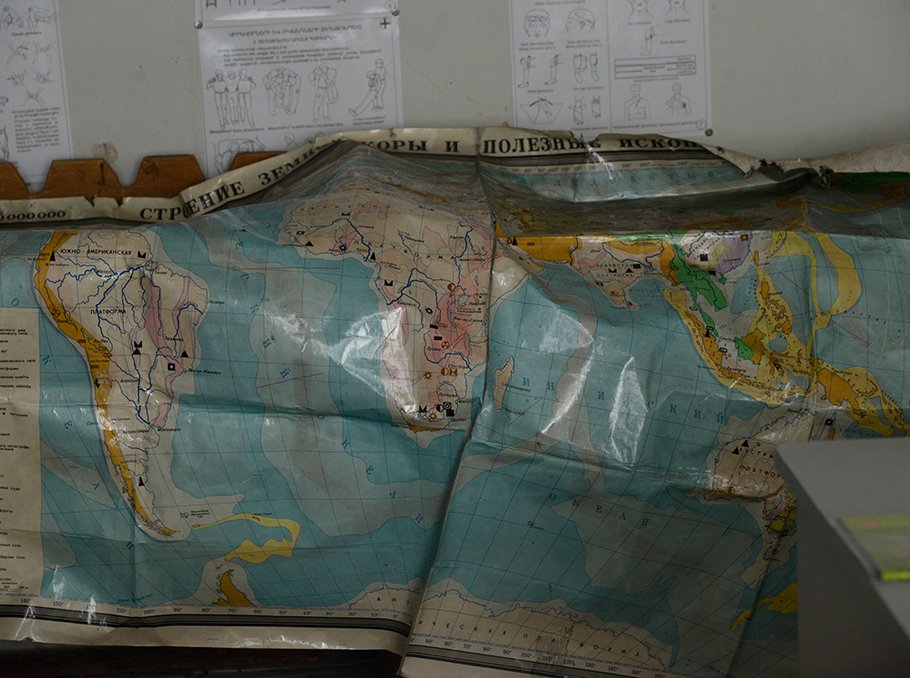
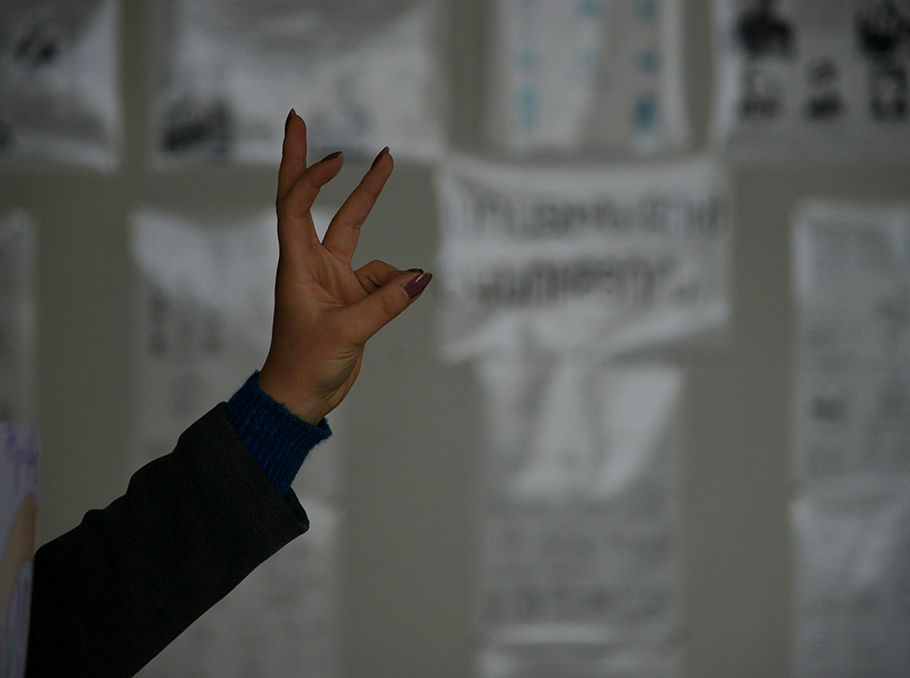
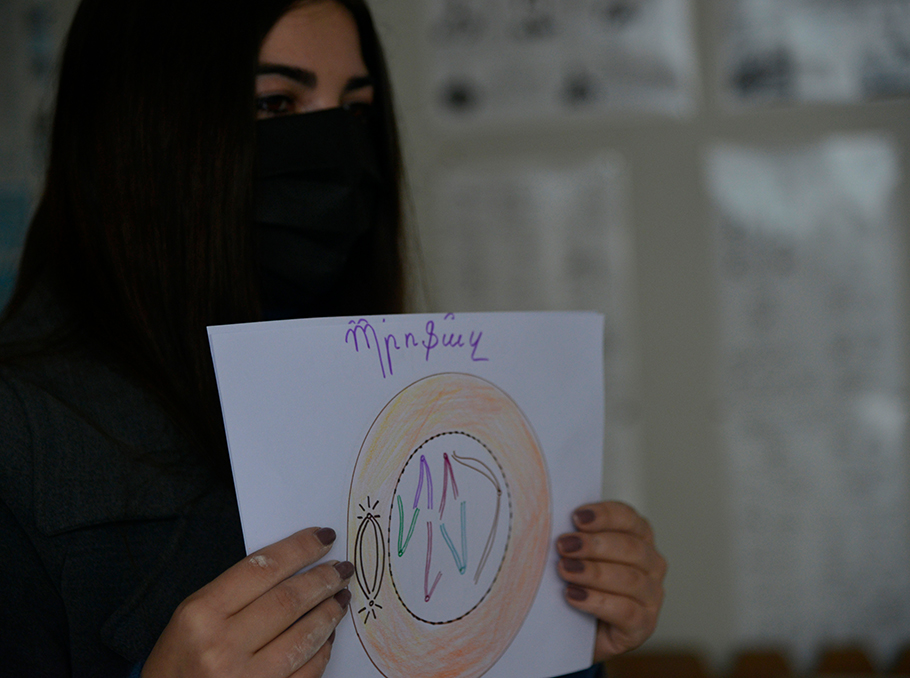
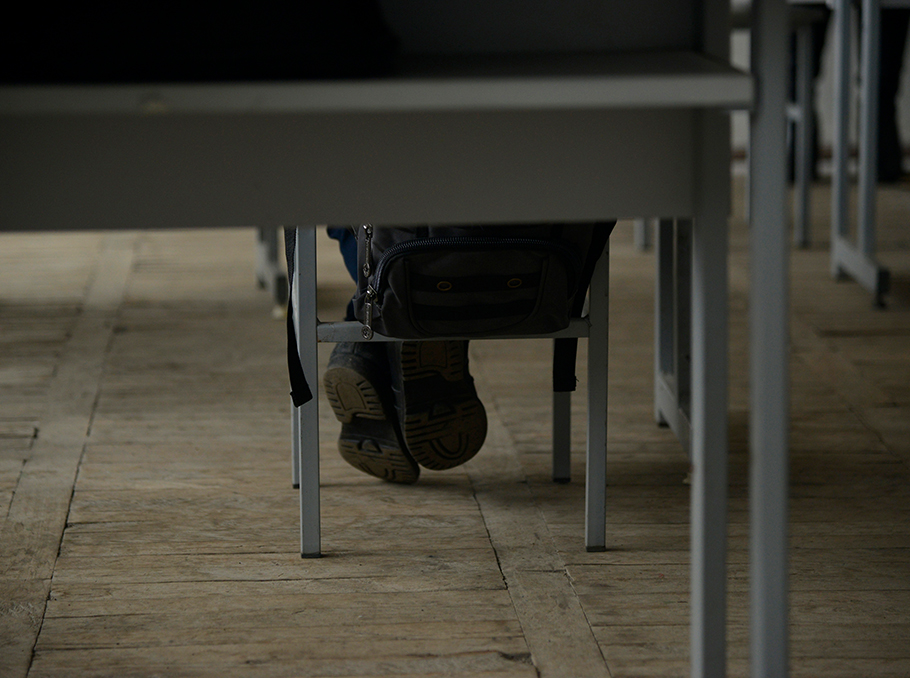
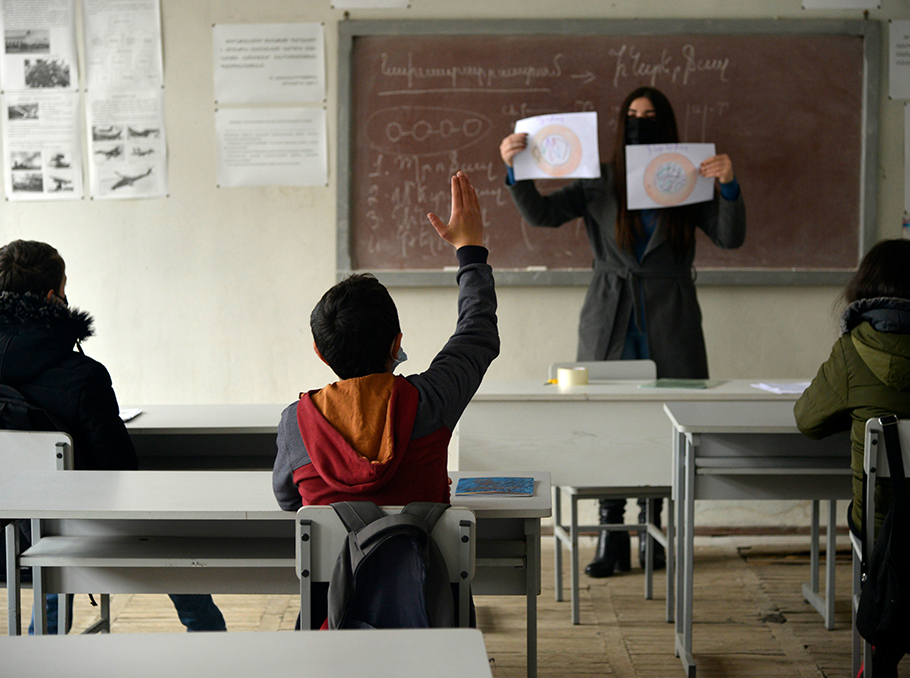





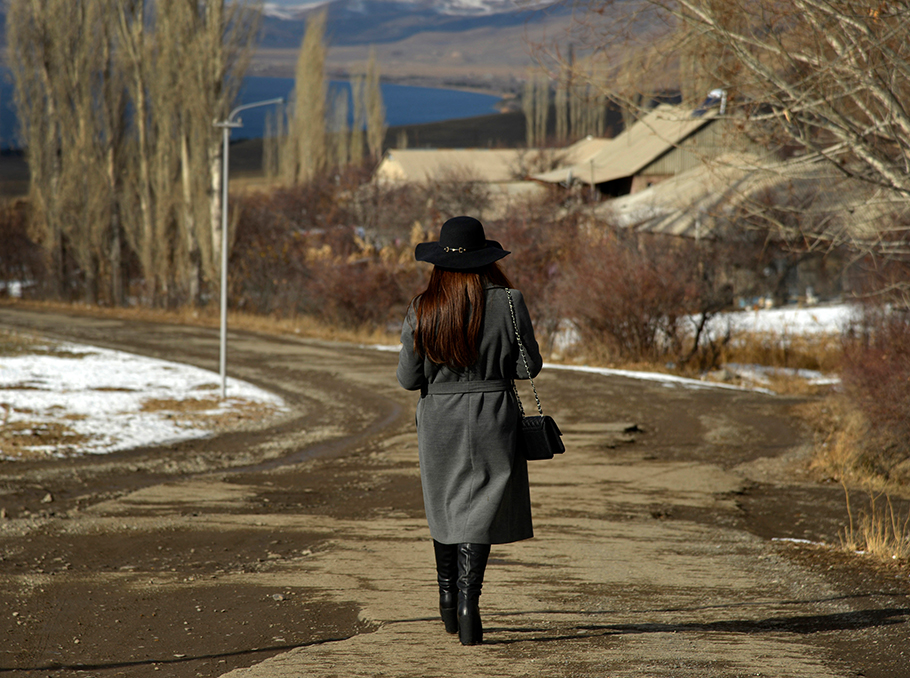
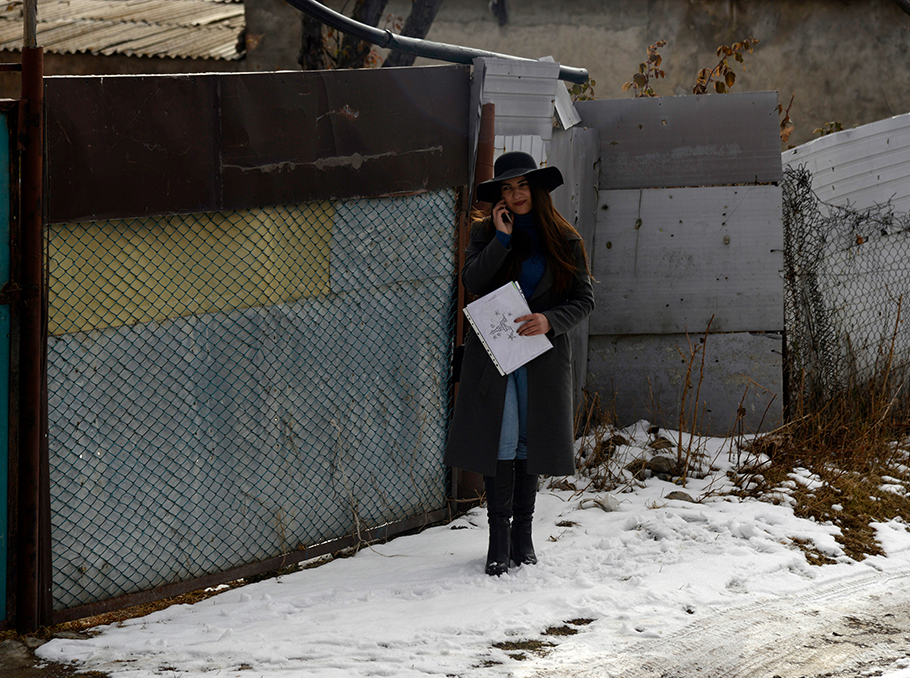
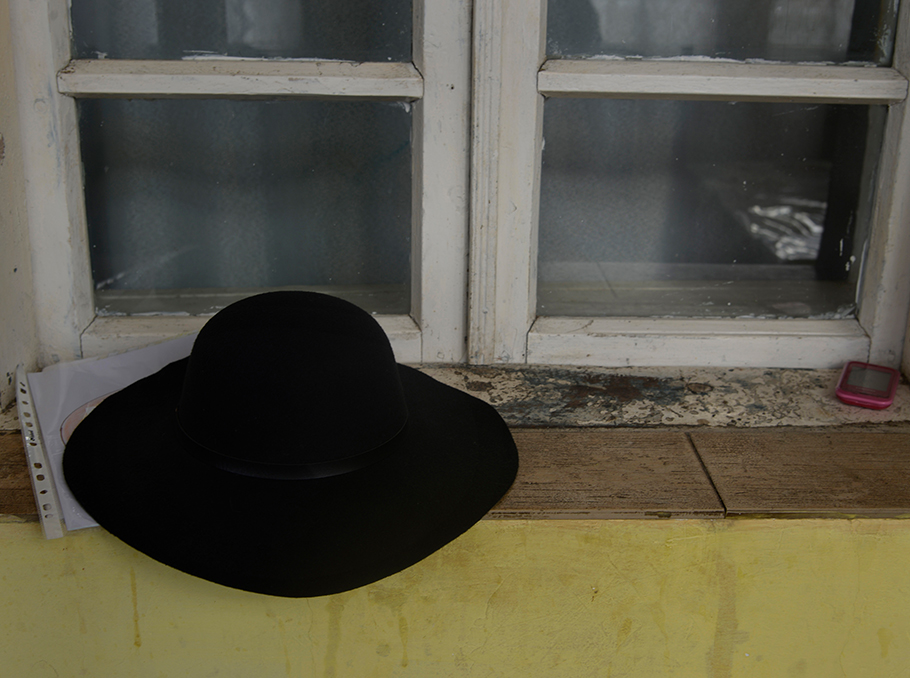
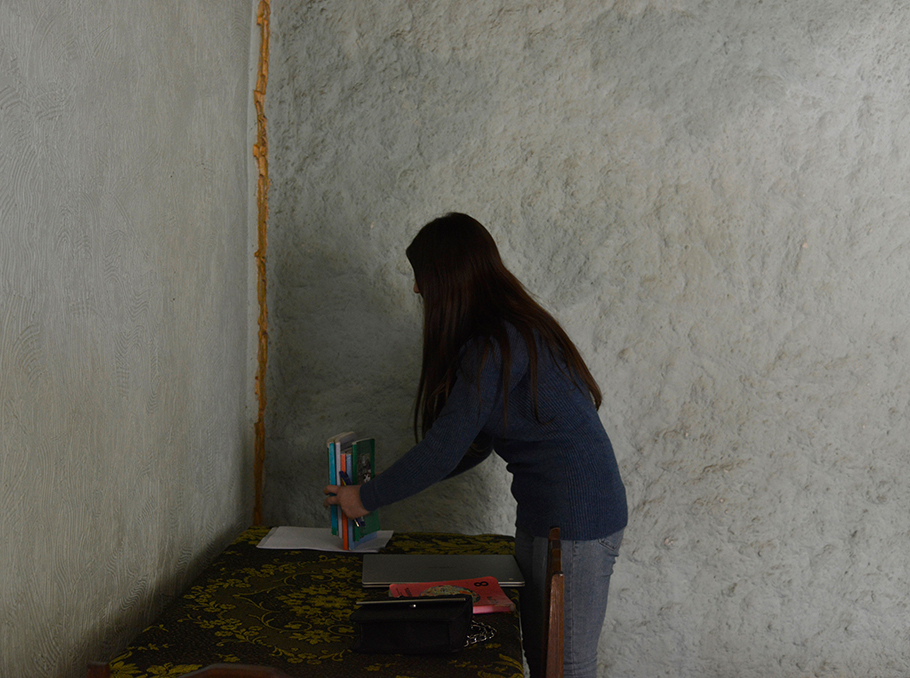

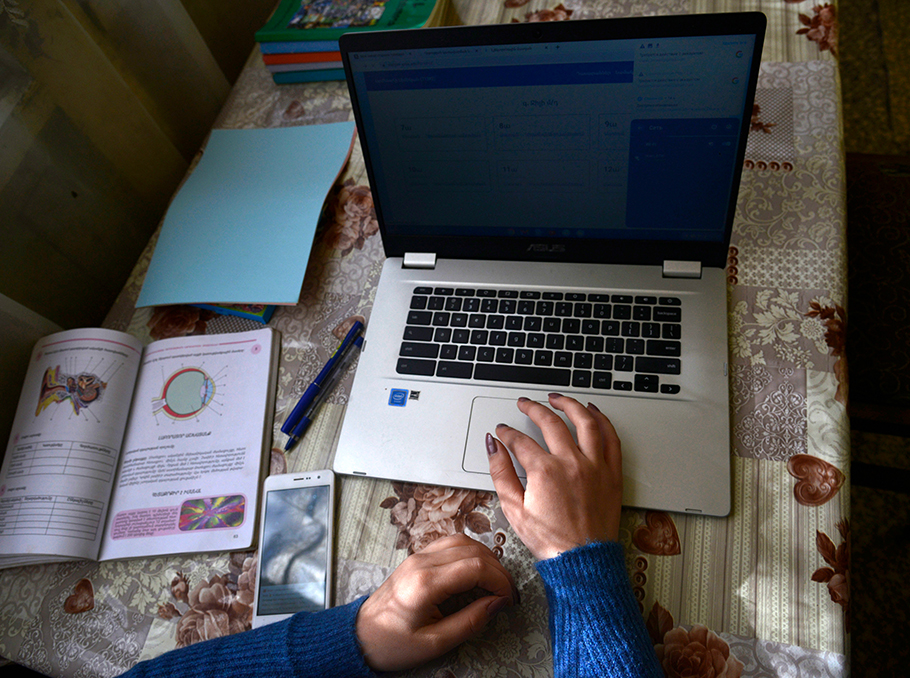
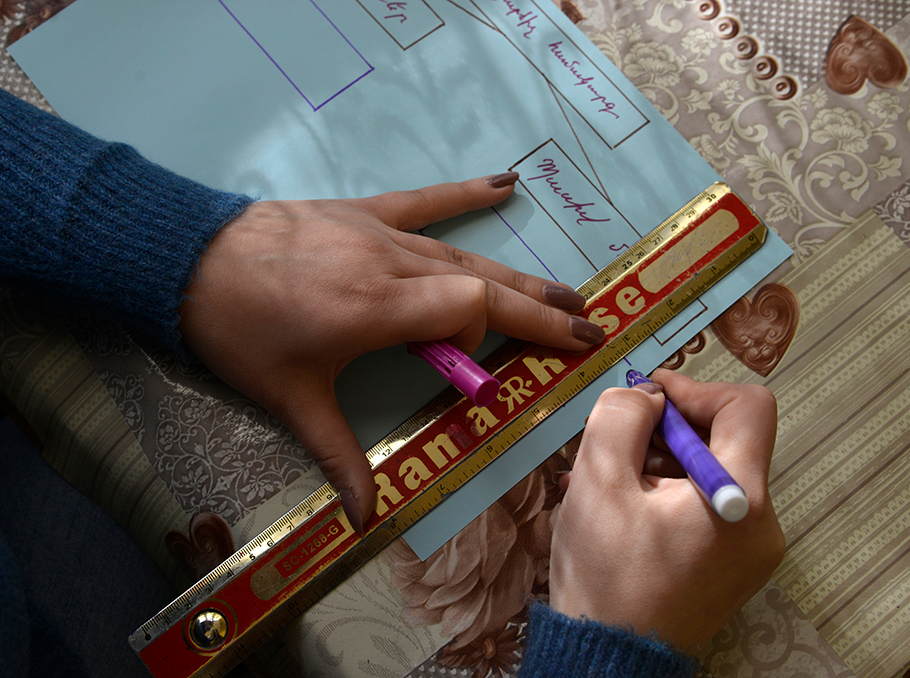

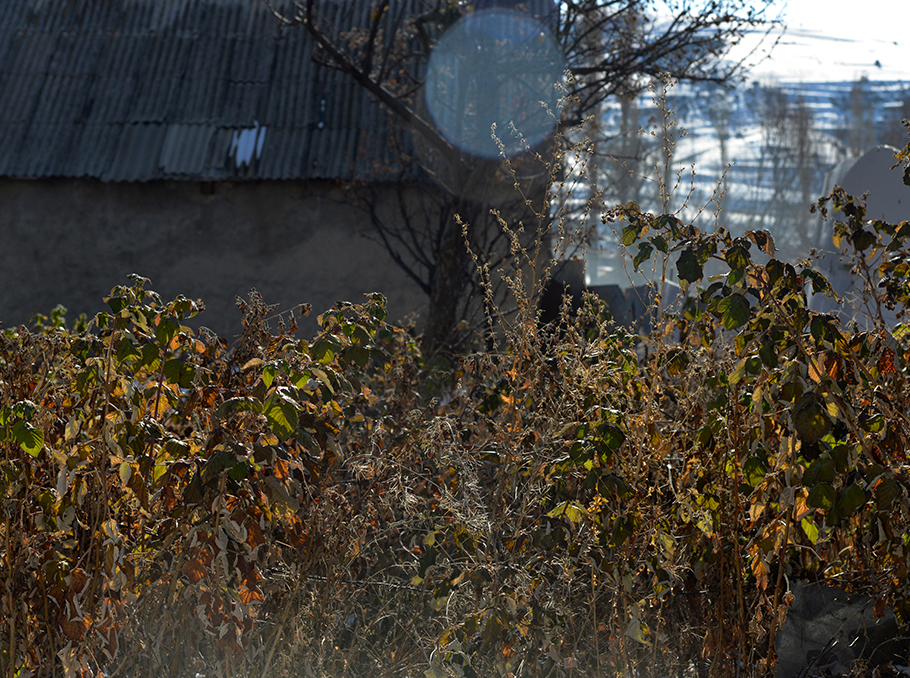

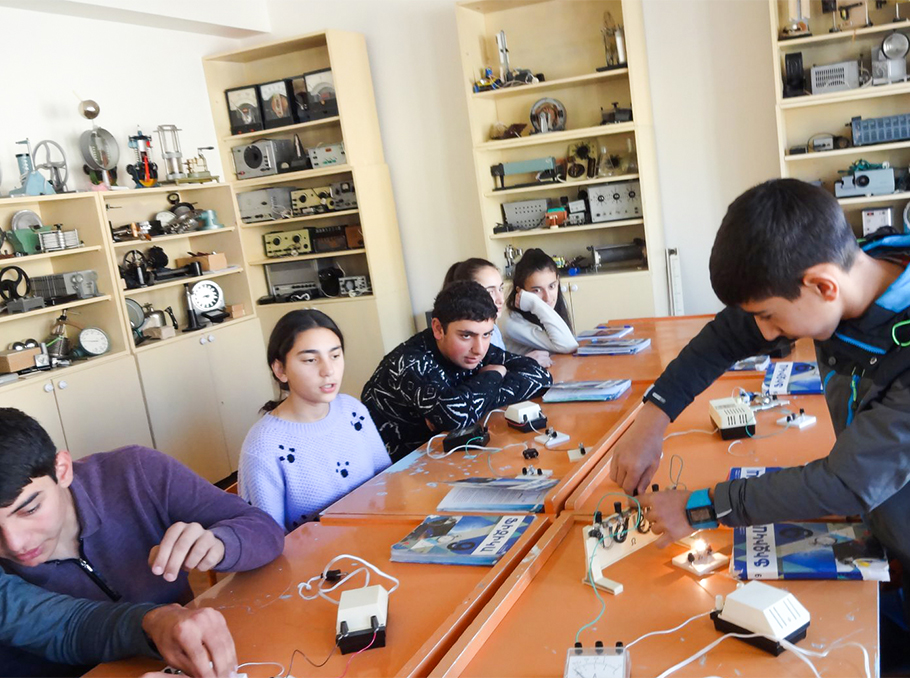
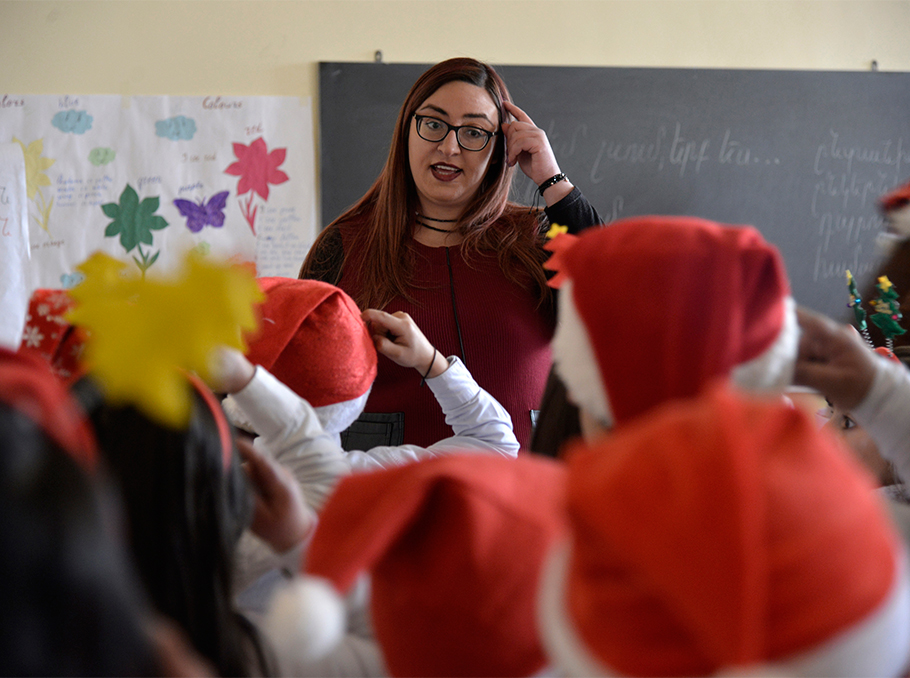
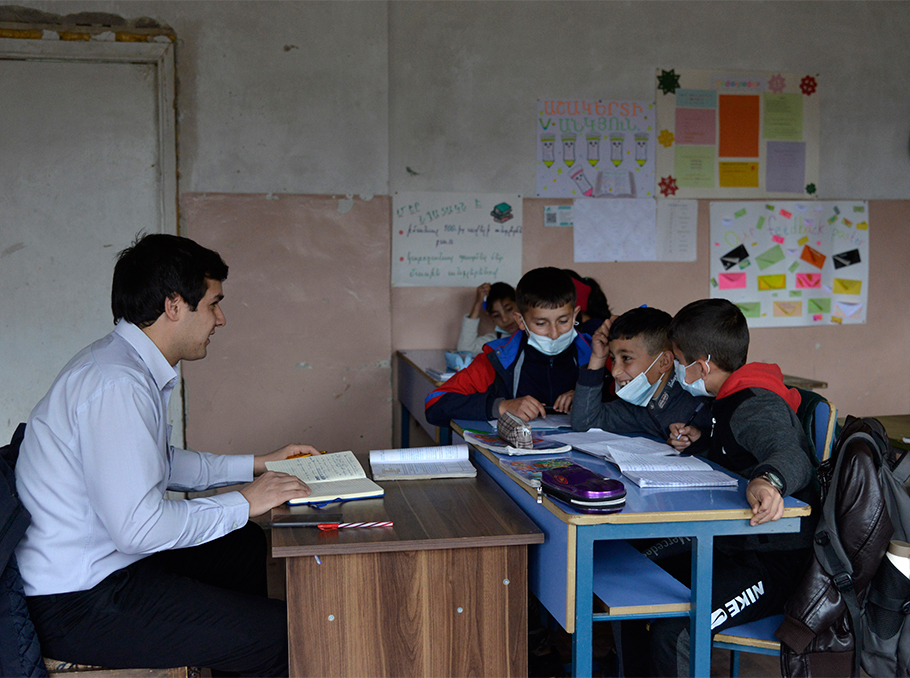
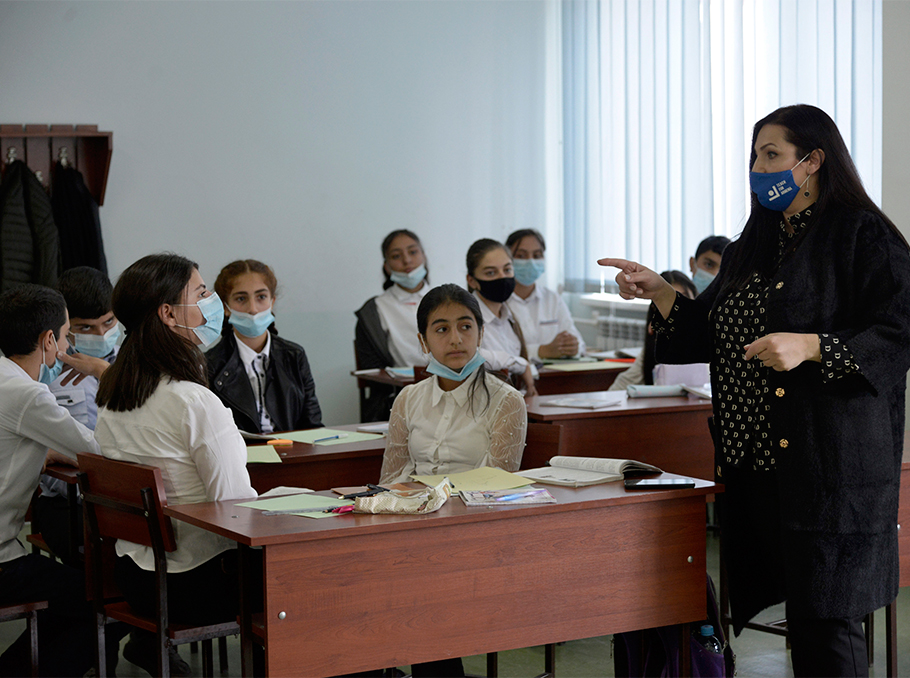
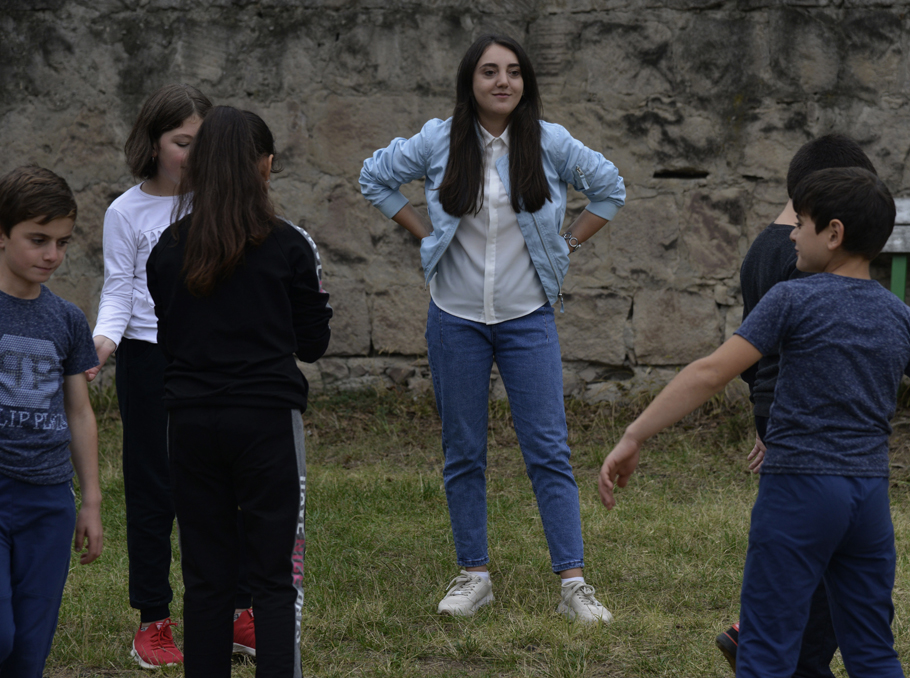





Comments
Dear visitors, You can place your opinion on the material using your Facebook account. Please, be polite and follow our simple rules: you are not allowed to make off - topic comments, place advertisements, use abusive and filthy language. The editorial staff reserves the right to moderate and delete comments in case of breach of the rules.